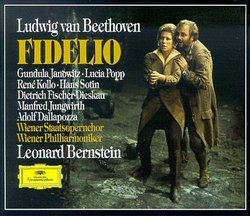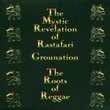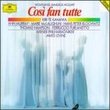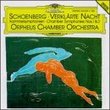| All Artists: Ludwig van Beethoven, Dietrich Fischer-Dieskau, Adolf Dallapozza, Hans Sotin, Manfred Jungwirth Title: Beethoven - Fidelio / Janowitz, Popp, Kollo, Sotin, Fischer-Dieskau, Jungwirth, Dallapozza, Wiener Phil., Bernstein Members Wishing: 0 Total Copies: 0 Label: Deutsche Grammophon Release Date: 10/25/1990 Genre: Classical Styles: Opera & Classical Vocal, Historical Periods, Classical (c.1770-1830) Number of Discs: 2 SwapaCD Credits: 2 UPC: 028941943620 |
Search - Ludwig van Beethoven, Dietrich Fischer-Dieskau, Adolf Dallapozza :: Beethoven - Fidelio / Janowitz, Popp, Kollo, Sotin, Fischer-Dieskau, Jungwirth, Dallapozza, Wiener Phil., Bernstein
 | Ludwig van Beethoven, Dietrich Fischer-Dieskau, Adolf Dallapozza Beethoven - Fidelio / Janowitz, Popp, Kollo, Sotin, Fischer-Dieskau, Jungwirth, Dallapozza, Wiener Phil., Bernstein Genre: Classical
In 1970, Leonard Bernstein was invited by the Vienna State Opera to prepare a new production of Fidelio for the Beethoven bicentennial. He returned in 1978 to make this recording with an all-star cast featuring Gundula Jan... more » |
Larger Image |
CD DetailsSynopsis
Amazon.com essential recording In 1970, Leonard Bernstein was invited by the Vienna State Opera to prepare a new production of Fidelio for the Beethoven bicentennial. He returned in 1978 to make this recording with an all-star cast featuring Gundula Janowitz in the title role. At the same time, Bernstein was finishing his integral recording of the Beethoven symphonies with the State Opera's pit orchestra, the Vienna Philharmonic. It's hardly surprising, then, that this account of Beethoven's only opera conveys such an extraordinary sense of occasion and exhibits a degree of musical cohesion that can only be described as "symphonic." Bernstein is, of course, the biggest star of all here, and he presides over a performance of remarkable strength and dramatic conviction, especially memorable for the emotional intensity of the climactic moments (in particular, Pizzaro's "Ha! Welch ein Augenblick!", the Act I finale, and the Act II quartet). One of the account's most striking features is its insertion of the Leonore Overture No. 3 before the final scene of Act II, honoring a tradition established by Gustav Mahler when he was director of the Vienna Court Opera at the beginning of the 20th century. In Bernstein's hands, this 15-minute interlude becomes an impassioned meditation on the themes of love, courage, and self-sacrifice that lie at the heart of the opera. --Ted Libbey Similar CDs
|
CD ReviewsMagnificent Michael Newberry | Santa Monica | 05/01/2000 (5 out of 5 stars) "What a wonderful recording. Bernstein does a magnificent job conducting this stellar cast. The sound is top notch, and the singing sounds very well balanced. Lucia Popp and Gundula Janowitz SHINE. The characterization of the male principals may not be menacing or tortured, but Hans Sotin and Rene Kollo sing beautifully. Each and every one of the singers seems to place their notes perfectly and they sound like exclamation marks of the orchestra. I know this doesn't sound fantastic, but it ALL, under Bernstein's command, comes together so tightly with pacing and structure, that I feel swept into a heroic universe, like I am hearing Beethoven at his greatest! I do have one disparaging comment, perhaps aesthetically incorrect, but I can't stand hearing dialog in opera recordings! It completely halts the momentum of the music. In this recording there is only a few minutes of dialog, separately tracked, which I program out. Humor me and try it, and see if you feel that Fidelio improves without the dialog (sincere apologies to purists and to Beethoven). There is included a very good booklet with an insightful interview with Bernstein." Golden Information for SHOPPERS Michael Newberry | 03/10/2003 (5 out of 5 stars) "I would like to share some wonderful information with Amazon shoppers. Bernstein has another performance recorded live in 1970 in Rome, which has an intensity that surpasses his 1978 DG performance. The Rome 1970 version is a wonderful live performance. It has an electricity which is missing in most studio versions. Birgit Nilsson there is far superior to her performance for Maazel (Decca). Her voice is warm and intense here whereas she is steely and frigid in Maazel. Birgit Nilsson there is far superior to Janowitz in Bernstein's later version. Janowitz's lyrical soprano sound too anemic - it lacks power. You don't get any kick out of listening too Janowitz. Yes, her voice is pure and beautiful. She sings with commitment and feeling. The problem is that this is FIDELIO. you don't just want to hear beautiful emotions and feeling, you want a DRAMATIC SOPRANO to pin you back in your seat!!!!!! Nilsson's legendary voice has the power of a nuclear plant. She does exactly that. When she hits those top notes, you are literally blown away. Ludovic as Florestan is also superior to Rene Kollo. Ludovic sounds far more at his wits end than Kollo and Ludovic's voice has more power. There is far more intensity and emotion here. Helen Donath is wonderful as Marzelline. Lucia Popp may sing more beautifully, but I think Helen Donath sings with greater intensity and soul. You kind of feel what she is thinking. Here it's a close call between Lucia Popp and Helen Donath. Theo Adam as Don Pizarro is far superior to Hans Sotin for Bernstein(DG). Theo Adam has more venom and intensity. The other singers too sing with an intensity which is not found in Bernstein's more popular 1978 DG version. The only drawback of the other version is that the recorded sound is not too good. It is a live performance. And some details are lost in the recording. But what is lost in detail is made up for by the intensity of the singers. I give 5 stars for the 1970 performance. The recorded sound should be 3.5 stars.For this version, I give 4.5 stars for performance and 4.5 stars for recorded sound (4.5 stars because I find the revebrant recording annoying - it is as if the performers were performing in an empty hall - you don't want that feeling). Ultimately, the best version is still Klemperer (EMI) in which Christa Ludwig intensity blows every other recorded Leonore away - the power of a dramatic soprano mixed with raw emotion and intensity. But this Bernstein is certainly an outstanding performance with the kind of soul and intensity seldom found in studio recordings. The Klemperer, of course, is the exception that proves the rule.If you are planning on Bernstein, I think the other version would satisfy you more than this version for Deutsche Grammophon(DG). And it's far cheaper too. Yes, you sacrifice clarity, but ultimately, you want a Leonore to pin you back to your seat and you want singers with raw emotion and intensity. The other version of Bernstein's Fidelio is like being involved in an action movie, the thrill is there but in the process, some details become fuzzy. Bernstein's later DG version is like reading a book. Everything is more or less crystal clear. But you lose some of the thrill of being in the action. Finally, there are some bonus tracks in this CD set - some performance from a live recording of Fidelio by Erich Kleiber in 1956, with Birgit Nilsson again. It is interesting to see how Nilsson has developed between 1956 and 1970.Remember: in classical music, cheaper does not imply inferior. Don't discount the Rome version. Enjoy the 1970 Rome superb performance at an incredibly low price. You may enjoy it so much that you don't see a need to buy Bernstein's 1978 DG version. Also, Remember, without a DRAMATIC SOPRANO in the central role of Leonore, you lose some kick out of Fidelio.The other Rome version is under Label: Gala - #557. Audio CD (September 25, 2001) ASIN: B00005Q6K7Just type do a search and you'll find it." Bargain Naxos Derek Lee | 08/19/2003 (5 out of 5 stars) "The Bargain set under Naxos by Halasz with lesser known singers - Inga Nielsen as Leonore, Gosta Winbergh as Florestan, Kurt Moll as Rocco - is, in my opinion, more recommendable than Bernstein's set. Fans of Janowitz, Popp, Kollo, Bernstein and company would want this set. But if you are looking for just one Fidelio set, I would recommend Halasz's set. My top choice is, without doubt, Klemperer's classic Fidelio. But I think Halasz's set works too as a sole representative in your library. This set has more famous names but the other set is overall more exciting and better conducted, not to mention - it's cheaper (about 1/3 the price of this set). I know it sounds incredible that this prestigious set from Deutsche Grammophon should be upstaged by a budget set from Naxos but I think it is true, at least in my opinion. I have both sets so it makes little difference to me. But for buyer's who want to knoe Fidelio without paying too much, Halasz version is superb. Of course, if you pay a few dollars more, you can get Klemperer's classic set. Klemperer's set is more monumental and dramatic and his tempi is sometimes slower. Halasz uses lighter voiced singers and adopts faster speeds. I don't agree with Bernstein's tempi - it is sometimes too slow and at the end, he shifts up to high gear suddenly. janowitz is beautiful but she sounds strained at the climaxes (unlike nielsen who doesn't)."
|

 Track Listings (20) - Disc #1
Track Listings (20) - Disc #1



